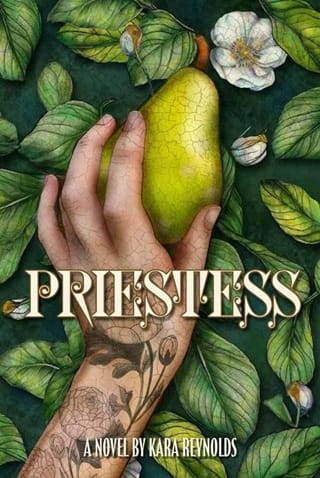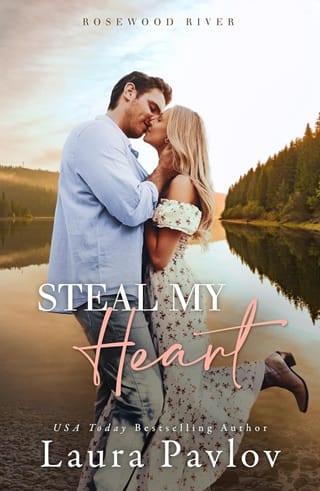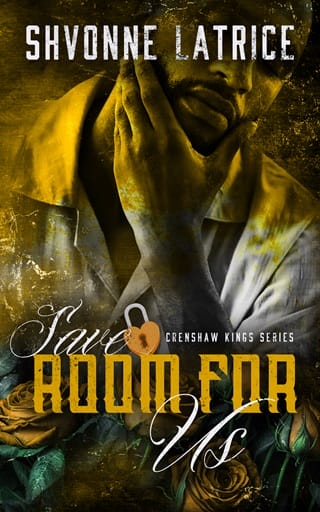18.Pikestully
Alric rode past, pulling up to the front, calling for us to begin the last day of our journey, and our cavalcade of soldiers and prisoners of war made its way down the dust road.
As the sun rose, the road seemed to go on forever, past farms and pastures, fields of husbanded vegetation, houses and barns dotting the landscape, standing closer and closer together until we rode through an actual village.
All the while, a brine scented the air.
We were nearing the sea.
It was a sight most dwellers of this continent had not seen unless they had journeyed to Tintar, owners of all the civilized coastline.
Unless one survived a trek through the hinterlands of the Helmsmen clans in the Hintercliff mountains to the north or dared travel past Tintar’s southernmost borders to the marshes and as yet unclaimed wastelands, some lands no living man had explored, the sea and all of its shores belonged to Tintar.
I confessed to myself that this intrigued me.
I wanted to see the ocean.
Riding back down the line, after we had passed through a second village, Alric spoke to a few of the soldiers, eyes passing over his captives appraisingly.
He looked at me in a startled manner as his Maggie cantered past our gray.
I noted the dried blood on his left hand.
It had been him at the tree line this morning, praying and kneeling.
To which god did he petition and for what?
After a time, Maggie and her rider returned to trot next to us.
Checking that Helena truly slept against me, he asked, his tone hushed, “She ate the paste?”
Again, as the morning after her rape, when he had asked how Helena fared, his tone was nearly gentle.
I wanted to fight.
I wanted to turn to him and hurl accusations about binding our hands in the mist.
But my own guilt at dismissing Maureen’s observations stopped me.
I looked at him, taking in how he sat up straight now in his saddle, his form upright, not the penitent I had seen hours before.
I said, “She did.
Again, I thank you and your man for that.
And all the clean clothes.”
He nodded, his eyes flicking below my face and then away.
We rode side by side, quiet, for hours.
In my limited vision, on my left side, I sensed his study, his body seated with all the gravity and dignity that belied his rank, but his eyes were restless, returning to his right, to me, over and over.
I pondered what could have caused his interest.
What had I done now? In what new way I had earned his ire or his inspection? Or was he sympathetic to Helena’s state? Was he wondering why a priestess would gladly abandon her order’s robes on a barn floor, no matter how bedraggled? A bloom stole over my face and my chest as I understood.
My figure was now easier to make out in this too-tight, rust-colored dress with its square neckline.
He was looking at me and my initial sense of him seeing me as a man sees a woman he wants returned.
Perhaps, I had not been wrong.
At first, I was briefly flattered.
Though not as traditionally handsome as some, he was a fine figure of a man, fit and masculine.
And I was not immune to the heady awareness one has when an inscrutable beholder wants to behold you.
Then I was repulsed by my own neediness.
One man’s attention and all of my outrage was gone.
I resolved to pretend he was not there.
The dust road soon had a sandier, rockier soil and its path reached the sea and turned upwards to gargantuan bluffs that hung over that endless expanse of green-gray.
Our horses fell into a single file and went more slowly up the stony incline.
The bluffs were made of dark gray rock, like blocks of coal, a bluish green scrub grass clinging to the surface.
When our mounts had reached the flatter top, we again grouped into two riders aside each other, but the boy called Luka had replaced Alric in line and the pinkness on my bosom faded.
The waves below crashed again and again against the impervious bluffs.
My eyes drank in the sea, its frothing muted blues and greens roiling beneath me on my right side.
I could have stared for days on end and my awe would have not dulled.
I searched the horizon where the crisp blue of a spring day in Tintar met the swirl of this churning, magical beast.
I should have let her sleep, but I woke Helena with one hand reaching up to stroke her hair and I spoke her name.
“Look,”
I said, a catch in my throat.
“Look at that, kindred.”
“Oh,”
she breathed.
“Oh, Edie.”
“I know.
I never thought I would see it in my entire life.”
“I can smell the salts of Vyggia,”
she murmured.
“Or is that just the sea?”
I could not tell if she jested.
I reached down to where her hands were clasped at my stomach and squeezed.
Down the line, I heard the muffled wonderment of the other women.
Well past the dinner hour, we reached Pikestully.
I had seen drawings of what Pikestully was supposed to look like.
They were poor renderings.
It was a majestic sight.
I had lived in Apollon, the capital of wealthy Perpatane and in Eccleston, the only state on the continent governed by voting citizens and learned men, with its spires and universities.
They were stick and brick compared to this.
The city of the Shark King was built into the bluffs along the coast.
Gray-stoned keeps and temples all abutted the coal-black rock, sitting out below us on our left.
Below them, as if game pieces lined up by a tidy god, a crosshatching of streets and buildings spread out, a territory without end, it seemed.
What truly took my breath away were the spikes of black and gray rock jutting out of the ocean to my right.
Each one was ten times the height of the tallest ash tree and as broad as an Eccleston city block.
I counted five of them dotting the horizon.
“The stone drakes,”
Helena said.
“The what?”
“The Tintarian dragons.
Those black rocks are what’s left of their bones.”
To me, they just appeared as colossal spearheads protruding amidst the waves.
Ahead of us, a gap in the bluffs held in its gaping maw, a manmade port where behemoth warships as well as lines of sleek fishing boats were moored.
I could barely see the other side of the port, but I could make it out and also saw the continuation of strongholds built into the bluff rock and the continuation of city streets below.
The bluff path headed down a long slope that interrupted the flow of buildings built into the bluff.
It led all the way to the city, built over the rocky ground.
It took us nearly an hour.
It was slow going and the path was steep.
At the bottom, on a plateau of sorts, just above where the city began from against the bluff buildings, was an impressive stable with hundreds of stalls.
Dozens of soldiers in Tintarian black met our party, greeting Alric at the head and staring at the mounts bearing us women.
“Do not cuff them,”
said Alric.
“They have nowhere to go.”
The four draft horses and Nash’s mount were herded by Tristan and Luka into the stables, leaving the rest of the soldiers outside.
“Dismount,”
ordered Tristan and we did.
“Wait here,”
he continued.
The two young men dismounted, stabled our horses while we huddled in a circle and then left the building, back on their horses.
“What’s going to happen?”
whined Eefa.
“We need to stay calm,”
I said.
“Speculation will drive us mad before we even know what is going to—”
“Why are you always in charge?”
the girl snapped.
Before I could answer, guards, also in the Tintarian black, but foreign to us, marched purposefully into the stables.
There were two of them to each of us.
I searched for a familiar face among them, for one of the Procurers, as Alric had referred to his men.
I saw none.
“Come,”
called one of the guards.
We fell in line with them, one on either side of us.
I had to release Helena’s hand from mine as I followed formation.
We were in the sun outside, passing the still-mounted Procurers, all nineteen of them watching us as we were led away from them to a high-arched tunnel entrance that appeared to bore into the bluff and lead to both the left and right, either direction disappearing into the rock.
Before we entered inside, I looked over my shoulder, straight back at the captain.
To what had he condemned us?
 Fullepub
Fullepub 



